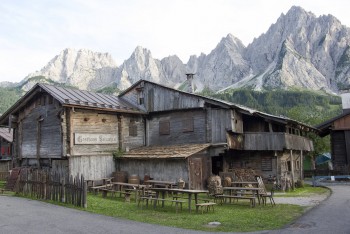

He was convicted and sentenced to death on July 6, 1943. His initial offer to serve in the medical corps was ignored, and it seems he eventually changed his mind about even serving as a non-combatant medical orderly. He announced his refusal to serve and was immediately arrested. There would be no more agricultural reprieves. He did not want to board a train on its way to hell, and he would not!įinally, in February of 1943, Franz was called to active duty. Franz came to see the train as Hitler, or National Socialism, and those eager to board the ride the supporters of the 1938 annexation. Even still, people continued to board the train with eagerness and enthusiasm, knowing they were on their way to hell. But, it soon became clear that the train was on its way to hell. Those who surrounded the tracks were shouting with great eagerness to get on the train, joining the ride with enthusiasm. In this dream, he saw a train barreling around a mountain. In a meeting with the Bishop of Linz, Franz came away disappointed that the Bishop encouraged him to join up, fearful of what any opposition would mean.īlessed Franz would relate to his wife, priest, and others a dream he had in 1938. Even still, he continued to reflect on the morality of a war he had come to regard as unjust. In these years, Franz quietly continued his work as a farmer, as a member of the Third Order Franciscans, and as the sacristan in his parish church. As a Catholic, he could not fight for Hitler. He regarded Hitler and National Socialism as enemies of the Church, suppressing the Church for their purposes.

By this time, Franz was well-known in his village of Saint Radegund as an opponent of National Socialism and the war. Though he completed his basic training when called up in 1940, he was given an agricultural reprieve from service so he could continue to farm. Authorities suppressed his dissent and reported unanimous approval. In 1938, when Germany annexed Austria, Blessed Franz was the only one in the village to vote against the move. In 1936, he married Franziska Schwaninger, a devout Catholic, and the couple had three daughters. That same year, he inherited the farm of his adoptive father. Known in his youth as a wild young man and a skirt chaser, Franz fathered a daughter out of wedlock in 1933. Bachmeier was killed in World War I, and his mother married Heinrich Jagerstatter in 1917. Blessed Franz was an Austrian peasant farmer who refused to fight for Hitler and National Socialism during World War II and was executed for his refusal.įranz was born in Saint Radegund, Austria in 1907, the illegitimate son of Franz Bachmeier, a farmer, and Rosalia Huber. Today, August 9, is the anniversary of the execution of Blessed Franz Jagerstatter.


 0 kommentar(er)
0 kommentar(er)
